The 20 most influential books in history
What’s the most influential book you’ve ever read? For most of us, that’s a tough call to make. But that was the question put to the public ahead of Academic Book Week. An expert panel of academic book-sellers, librarians and publishers nominated 200 titles, and members of the public were asked to vote online for their top 20.
Many of the books that make up the final 20 are hundreds – in one case thousands – of years old, proving that the best works really do stand the test of time. How many of these classics have you read?
1. On the Origins of Species
Author: Charles Darwin
Published: 1859
Why you should read it: It’s simple: “No work has so fundamentally changed the way we think about our very being and the world around us,” says Alan Staton, head of marketing at the Booksellers Association.
Published: 1859
Why you should read it: It’s simple: “No work has so fundamentally changed the way we think about our very being and the world around us,” says Alan Staton, head of marketing at the Booksellers Association.
2. The Communist Manifesto
Author: Karl Marx and Friedrich Engels
Published: 1888
Why you should read it: As Marxist historian Ellen Meiksins Wood says, this is more than just a manifesto: “It’s not just a uniquely influential document in the theory and practice of revolutionary movements throughout the world; it’s also a work of history, of economic, political and cultural analysis, and of prophecy.”
Published: 1888
Why you should read it: As Marxist historian Ellen Meiksins Wood says, this is more than just a manifesto: “It’s not just a uniquely influential document in the theory and practice of revolutionary movements throughout the world; it’s also a work of history, of economic, political and cultural analysis, and of prophecy.”
3. The Complete Works
Author: William Shakespeare
Published: The plays were first published between 1594 and 1634
Why you should read it: Elizabethan poet Ben Jonson said that Shakespeare was “not of an age but for all time”. He wasn’t wrong. Centuries later, Shakespeare’s plays are still by far the most studied and performed in the English-speaking world and beyond.
Published: The plays were first published between 1594 and 1634
Why you should read it: Elizabethan poet Ben Jonson said that Shakespeare was “not of an age but for all time”. He wasn’t wrong. Centuries later, Shakespeare’s plays are still by far the most studied and performed in the English-speaking world and beyond.
4. The Republic
Author: Plato
Published: 380 BC
Why you should read it: Not only is it an important piece of work from one of the most influential philosophers, it’s also very readable. “Plato did not write philosophy like a dry textbook – he wrote it like a living conversation,” says Robin Waterfield, a classics scholar.
Published: 380 BC
Why you should read it: Not only is it an important piece of work from one of the most influential philosophers, it’s also very readable. “Plato did not write philosophy like a dry textbook – he wrote it like a living conversation,” says Robin Waterfield, a classics scholar.
5. Critique of Pure Reason
Author: Immanuel Kant
Published: 1781
Why you should read it: It’s not an easy read. But British philosopher A.C. Grayling thinks the effort more than pays off: “Kant’s book requires a degree of concentration to be understood and appreciated, but it richly repays close study both for its own sake and because of the far-reaching nature of what it suggests.”
Published: 1781
Why you should read it: It’s not an easy read. But British philosopher A.C. Grayling thinks the effort more than pays off: “Kant’s book requires a degree of concentration to be understood and appreciated, but it richly repays close study both for its own sake and because of the far-reaching nature of what it suggests.”
6. A Vindication of the Rights of Woman
Author: Mary Wollstonecraft
Published: 1792
Why you should read it: At a time when revolutionaries were demanding equal rights for all men, Wollstonecraft demanded those rights be extended to women: “The book laid out the tenets of what today we call ‘equality’ or ‘liberal’ feminist theory,” says Anne Mellor, a professor of women’s studies.
Published: 1792
Why you should read it: At a time when revolutionaries were demanding equal rights for all men, Wollstonecraft demanded those rights be extended to women: “The book laid out the tenets of what today we call ‘equality’ or ‘liberal’ feminist theory,” says Anne Mellor, a professor of women’s studies.
7. The Wealth of Nations
Author: Adam Smith
Published: 1776
Why you should read it: Smith’s book has been described as “the foundation of economics, the origin of econometrics and the intellectual cradle of capitalism”, all of which are as relevant today as they were when he wrote it.
Published: 1776
Why you should read it: Smith’s book has been described as “the foundation of economics, the origin of econometrics and the intellectual cradle of capitalism”, all of which are as relevant today as they were when he wrote it.
8. Orientalism
Author: Edward Said
Published: 1978
Why you should read it: Said’s book sought to reveal the West’s patronizing and largely inaccurate understanding of Asia, North Africa and the Middle East, and how these views help to “mobilize fear, hatred, disgust and resurgent self-pride and arrogance – much of it having to do with Islam and the Arabs on one side and ‘we’ Westerners on the other”. Unless you’ve been living under a rock since September 2001, you’ll understand why this book is as pertinent as ever.
Published: 1978
Why you should read it: Said’s book sought to reveal the West’s patronizing and largely inaccurate understanding of Asia, North Africa and the Middle East, and how these views help to “mobilize fear, hatred, disgust and resurgent self-pride and arrogance – much of it having to do with Islam and the Arabs on one side and ‘we’ Westerners on the other”. Unless you’ve been living under a rock since September 2001, you’ll understand why this book is as pertinent as ever.
9. Nineteen Eighty-Four
Author: George Orwell
Published: 1949
Why you should read it: “It’s much more than a book – it’s a novel of huge social and political significance that’s never going to date,” says Abe Books, especially in an age of digital surveillance. Is Big Brother watching you?
Published: 1949
Why you should read it: “It’s much more than a book – it’s a novel of huge social and political significance that’s never going to date,” says Abe Books, especially in an age of digital surveillance. Is Big Brother watching you?
10. The Meaning of Relativity
Author: Albert Einstein
Published: 1922
Why you should read it: Einstein said his goal with the book was to give an insight into the theory of relativity to interested non-experts. This work does exactly that: “Nobody is better at explaining relativity than Einstein himself; his account provides a combination of depth and clarity that only he could confidently produce,” writes Tom Siegfried of Science News.
Published: 1922
Why you should read it: Einstein said his goal with the book was to give an insight into the theory of relativity to interested non-experts. This work does exactly that: “Nobody is better at explaining relativity than Einstein himself; his account provides a combination of depth and clarity that only he could confidently produce,” writes Tom Siegfried of Science News.
11. The Second Sex
Author: Simone de Beauvoir
Published: 1949
Why you should read it: Times have changed for women since this book was first published. But Beauvoir’s central argument that “one is not born, but rather becomes, a woman” and her detailed examination of women throughout history still makes for a compelling read.
Published: 1949
Why you should read it: Times have changed for women since this book was first published. But Beauvoir’s central argument that “one is not born, but rather becomes, a woman” and her detailed examination of women throughout history still makes for a compelling read.
12. The Rights of Man
Author: Thomas Paine
Published: 1791
Why you should read it: Paine was “an original thinker, far ahead of his time,” says John Belchem of the University of Liverpool. The Rights of Man, written while Paine was taking part in the French Revolution, addresses issues – poverty, inequality, welfare – that are still hotly debated today.
Published: 1791
Why you should read it: Paine was “an original thinker, far ahead of his time,” says John Belchem of the University of Liverpool. The Rights of Man, written while Paine was taking part in the French Revolution, addresses issues – poverty, inequality, welfare – that are still hotly debated today.
13. A Brief History of Time
Author: Stephen Hawking
Published: 1988
Why you should read it: It tackles one of the biggest and most intriguing questions: where did we come from and where are we going? “I wanted to explain how far we had come in our understanding of the universe: how we might be near finding a complete theory that would describe the universe and everything in it,” writes Hawking.
Published: 1988
Why you should read it: It tackles one of the biggest and most intriguing questions: where did we come from and where are we going? “I wanted to explain how far we had come in our understanding of the universe: how we might be near finding a complete theory that would describe the universe and everything in it,” writes Hawking.
14. Silent Spring
Author: Rachel Carson
Published: 1962
Why you should read it: When Carson, a former marine biologist, took on the chemical industry and revealed the damage pesticides were doing to the planet, she probably didn’t know how much of an impact her book would have. Described as “one of the most effective books ever written”, it paved the way for the modern environmental movement.
Published: 1962
Why you should read it: When Carson, a former marine biologist, took on the chemical industry and revealed the damage pesticides were doing to the planet, she probably didn’t know how much of an impact her book would have. Described as “one of the most effective books ever written”, it paved the way for the modern environmental movement.
15. The Female Eunuch
Author: Germaine Greer
Published: 1970
Why you should read it: Even to this day, both Greer and her book divide feminists. And perhaps that’s why it made it on to this list: it still gets people thinking about and debating important issues. “Her insights, while not always strictly accurate, offer revelatory analysis, and in a language so searing it galvanizes us to reflect more deeply on the status of women and the nature of gender relations,” writes Zohra Moosa of Mama Cash.
Published: 1970
Why you should read it: Even to this day, both Greer and her book divide feminists. And perhaps that’s why it made it on to this list: it still gets people thinking about and debating important issues. “Her insights, while not always strictly accurate, offer revelatory analysis, and in a language so searing it galvanizes us to reflect more deeply on the status of women and the nature of gender relations,” writes Zohra Moosa of Mama Cash.
16. The Prince
Author: Niccolò Machiavelli
Published: 1532
Why you should read it: The Prince provided aspiring rulers with a guide on getting power and holding on to it. “It may give readers an insight into the mindsets of leaders caught taking an ends-justify-the-means approach,” whether that be politicians or your boss.
Published: 1532
Why you should read it: The Prince provided aspiring rulers with a guide on getting power and holding on to it. “It may give readers an insight into the mindsets of leaders caught taking an ends-justify-the-means approach,” whether that be politicians or your boss.
17. Ways of Seeing
Author: John Berger
Published: 1972
Why you should read it: Berger’s book, based on a BBC television series, explores the way women and men are represented in culture, and how these representations influence the way they act. Thirty years after its release, theIndependent described it as “a rare example of that much-claimed title, the trailblazer”.
Published: 1972
Why you should read it: Berger’s book, based on a BBC television series, explores the way women and men are represented in culture, and how these representations influence the way they act. Thirty years after its release, theIndependent described it as “a rare example of that much-claimed title, the trailblazer”.
18. The Making of the English Working Class
Author: E.P. Thompson
Published: 1963
Why you should read it: History is written by the victors, as they say. Which is why history books tend to be dominated by royalty and aristocrats. Thompson’s book departed from that tradition: “I am seeking to rescue the poor stockinger, the Luddite cropper, the obsolete hand-loom weaver, the utopian artisan, and even the deluded follower of Joanna Southcott, from the enormous condescension of posterity,” he wrote in the preface. The impact was immense: “The book set the terms of reference for much labour history that followed.”
Published: 1963
Why you should read it: History is written by the victors, as they say. Which is why history books tend to be dominated by royalty and aristocrats. Thompson’s book departed from that tradition: “I am seeking to rescue the poor stockinger, the Luddite cropper, the obsolete hand-loom weaver, the utopian artisan, and even the deluded follower of Joanna Southcott, from the enormous condescension of posterity,” he wrote in the preface. The impact was immense: “The book set the terms of reference for much labour history that followed.”
19. The Uses of Literacy
Author: Richard Hoggart
Published: 1957
Why you should read it: With all the talk of income inequality – how it’s increasing, the many problems it spawns – Hoggart’s book about the working class is well worth a revisit: “Despite the social and economic transformations, thousands still recognize the life depicted – we should be closer to a classless society, but are not,” wrote Anita Sethi for the Independent.
Published: 1957
Why you should read it: With all the talk of income inequality – how it’s increasing, the many problems it spawns – Hoggart’s book about the working class is well worth a revisit: “Despite the social and economic transformations, thousands still recognize the life depicted – we should be closer to a classless society, but are not,” wrote Anita Sethi for the Independent.
20. The Naked Ape
Author: Desmond Morris
Published: 1967
Why you should read it: In this bestseller, Morris, a zoologist and ethologist, explores the human species by comparing them with other animals. He’s published follow-up books, but it’s this first one, and its “irresistible blend of hard science and populism” that still gets people talking.
Published: 1967
Why you should read it: In this bestseller, Morris, a zoologist and ethologist, explores the human species by comparing them with other animals. He’s published follow-up books, but it’s this first one, and its “irresistible blend of hard science and populism” that still gets people talking.
Have you read?
18 books Warren Buffet thinks you should read
17 books Bill Gates thinks you should read
18 books Warren Buffet thinks you should read
17 books Bill Gates thinks you should read
Author: Stéphanie Thomson is an Editor at the World Economic Forum
Image: Thomas Lecky, department head of books and manuscripts at Christie’s, holds a first edition of Charles Darwin’s book “On the Origin of Species by Means of Natural Selection” during a preview at Christie’s auction house in New York June 13, 2008. REUTERS/Lucas Jackson
ゼロ除算の発見は日本です:
∞???
∞は定まった数ではない・・・
人工知能はゼロ除算ができるでしょうか:
とても興味深く読みました:
ゼロ除算の発見と重要性を指摘した:日本、再生核研究所
2014年2月2日 ゼロ除算の発見4周年を超えました:
ゼロ除算関係論文・本
再生核研究所声明 439(2018.8.7): 人間として生きることとは - ある一面から
慣性の法則によれば、同じような生活を送っていると、この状況はどのような意味を有するのだろうかと ある種の不安とともに感じることがある。人間は、人間とは何者で、人生とは何だろうかと 同じような問いを想い返しては繰り返していると言える。まず、基本は 人間は作られた存在だから、作られたように生きる他はない。人間は生物、そして動物であるから、それらの要求を満たしたいと考えるのは 当然である。衣食足りて礼節を知る、恒産無ければ恒心なしも当然である。すなわち、生活や家庭内などの生活が相当に良い状況の中、さらに 自由な身になった場合に 人間は何を志向するだろうか。人間は何をしたいと思うだろうか。人間は多様で志もいろいろであるから、それらによって具体的な取り組みは 人によって違うが、心はみな通じていて、 良い思い、感動するようなことを志向するだろう。人生の基本定理、人生の意義は感動することにある。そこで良い感動が続くのは望ましいと考え、 その素は何だろうかと考えれば、人は世の名人や偉人の心構え、人生観、人生から多くを学ぶことができるだろう。そこで一芸に秀でたものの共通の心を理解し、共感、共鳴を覚え、普遍的なものを捉えられるだろう。 そこで、 人間とは何ものかと高次に考えることができるだろう。
人間は何を求めているのか。ここ 一様にゼロ除算の研究にはまっているが、どのような時に鋭い感動と喜びが湧いてくるかと問うている。共同研究者の奥村氏やPuha氏が想像もできないような新規な結果をメールで送って来た時など 激しい喜びが湧いて来る。そう新規な世界に触れるとき 人間の人間的な歓びが湧いて来るのでは ないだろうか。もちろん自分で考えが湧いたときも同様であり、ようするに新規な世界に触れたとき人間は大きな 喜びが湧いてくる存在ではないだろうか。 そこで人生の基本定理に対して、人の生きるは 真智への愛にある、真智とは 神の意志のことであると表現した。 要するに、真実が知りたい、本当のことが 知りたい、世界を知りたい それが 人間の 究極の意志、喜びでは ないだろうか。この文章には少し飛躍があるのではないだろうか。新規なことと、神の意志のこと、事実の関係である。 数学では、新しい結果には感動するが基本的で大きな意味のあるものこそ大きな感動を呼ぶ、それはそうであるが、基本的で大きな意味を有するの解釈、捉え方は 人によって異なるが、それらに共感、共鳴が伴っていることが 大事な点ではないだろうか。真偽が明瞭でない場合には真偽を明らかにしたいは事実の解明であり、それは真理の追究の基本的な 要素である。神の意志とは世界がどのようになっているか、ということであるが、それは基本と深さを伴った認識といえる。新規、事実、真理、共感、共鳴、世界観、神の意志はある統一性のあるものを指している。
以 上
再生核研究所声明 411(2018.02.02): ゼロ除算発見4周年を迎えて
ゼロ除算100/0=0を発見して、4周年を迎える。 相当夢中でひたすらに その真相を求めてきたが、一応の全貌が見渡せ、その基礎と展開、相当先も展望できる状況になった。論文や日本数学会、全体講演者として招待された大きな国際会議などでも発表、著書原案154ページも纏め(http://okmr.yamatoblog.net/)基礎はしっかりと確立していると考える。数学の基礎はすっかり当たり前で、具体例は700件を超え、初等数学全般への影響は思いもよらない程に甚大であると考える: 空間、初等幾何学は ユークリッド以来の基本的な変更で、無限の彼方や無限が絡む数学は全般的な修正が求められる。何とユークリッドの平行線の公理は成り立たず、すべての直線は原点を通るというが我々の数学、世界であった。y軸の勾配はゼロであり、\tan(\pi/2) =0 である。 初等数学全般の修正が求められている。
数学は、人間を超えたしっかりとした論理で組み立てられており、数学が確立しているのに今でもおかしな議論が世に横行し、世の常識が間違っているにも拘わらず、論文発表や研究がおかしな方向で行われているのは 誠に奇妙な現象であると言える。ゼロ除算から見ると数学は相当おかしく、年々間違った数学やおかしな数学が教育されている現状を思うと、研究者として良心の呵責さえ覚える。
複素解析学では、無限遠点はゼロで表されること、円の中心の鏡像は無限遠点では なくて中心自身であること、ローラン展開は孤立特異点で意味のある、有限確定値を取ることなど、基本的な間違いが存在する。微分方程式などは欠陥だらけで、誠に恥ずかしい教科書であふれていると言える。 超古典的な高木貞治氏の解析概論にも確かな欠陥が出てきた。勾配や曲率、ローラン展開、コーシーの平均値定理さえ進化できる。
ゼロ除算の歴史は、数学界の避けられない世界史上の汚点に成るばかりか、人類の愚かさの典型的な事実として、世界史上に記録されるだろう。この自覚によって、人類は大きく進化できるのではないだろうか。
そこで、我々は、これらの認知、真相の究明によって、数学界の汚点を解消、世界の文化への貢献を期待したい。
ゼロ除算の真相を明らかにして、基礎数学全般の修正を行い、ここから、人類への教育を進め、世界に貢献することを願っている。
ゼロ除算の発展には 世界史がかかっており、数学界の、社会への対応をも 世界史は見ていると感じられる。 恥の上塗りは世に多いが、数学界がそのような汚点を繰り返さないように願っている。
人の生きるは、真智への愛にある、すなわち、事実を知りたい、本当のことを知りたい、高級に言えば神の意志を知りたいということである。そこで、我々のゼロ除算についての考えは真実か否か、広く内外の関係者に意見を求めている。関係情報はどんどん公開している。
4周年、思えば、世の理解の遅れも反映して、大丈夫か、大丈夫かと自らに問い、ゼロ除算の発展よりも基礎に、基礎にと向かい、基礎固めに集中してきたと言える。それで、著書原案ができたことは、楽しく充実した時代であったと喜びに満ちて回想される。
以 上
再生核研究所声明 375 (2017.7.21):ブラックホール、ゼロ除算、宇宙論
本年はブラックホール命名50周年とされていたが、最近、wikipedia で下記のように修正されていた:
名称[編集]
"black hole"という呼び名が定着するまでは、崩壊した星を意味する"collapsar"[1](コラプサー)などと呼ばれていた。光すら脱け出せない縮退星に対して "black hole" という言葉が用いられた最も古い印刷物は、ジャーナリストのアン・ユーイング (Ann Ewing) が1964年1月18日の Science News-Letter の "'Black holes' in space" と題するアメリカ科学振興協会の会合を紹介する記事の中で用いたものである[2][3][4]。一般には、アメリカの物理学者ジョン・ホイーラーが1967年に "black hole" という名称を初めて用いたとされるが[5]、実際にはその年にニューヨークで行われた会議中で聴衆の一人が洩らした言葉をホイーラーが採用して広めたものであり[3]、またホイーラー自身は "black hole" という言葉の考案者であると主張したことはない[3]。https://ja.wikipedia.org/wiki/%E3%83%96%E3%83%A9%E3%83%83%E3%82%AF%E3%83%9B%E3%83%BC%E3%83%AB
世界は広いから、情報が混乱することは よく起きる状況がある。ブラックホールの概念と密接な関係のあるゼロ除算の発見(2014.2.2)については、歴史的な混乱が生じないようにと 詳しい経緯、解説、論文、公表過程など記録するように配慮してきた。
ゼロ除算は簡単で自明であると初期から述べてきたが、問題はそこから生じるゼロ除算算法とその応用であると述べている。しかし、その第1歩で議論は様々でゼロ除算自身についていろいろな説が存在して、ゼロ除算は現在も全体的に混乱していると言える。インターネットなどで参照出来る膨大な情報は、我々の観点では不適当なものばかりであると言える。もちろん学術界ではゼロ除算発見後3年を経過しているものの、古い固定観念に囚われていて、新しい発見は未だ認知されているとは言えない。最近国際会議でも現代数学を破壊するので、認められない等の意見が表明された(再生核研究所声明371(2017.6.27)ゼロ除算の講演― 国際会議 https://sites.google.com/site/sandrapinelas/icddea-2017 報告)。そこで、初等数学から、500件を超えるゼロ除算の証拠、効用の事実を示して、ゼロ除算は確定していること、ゼロ除算算法の重要性を主張し、基本的な世界を示している。
ゼロ除算について、膨大な歴史、文献は、ゼロ除算が神秘的なこととして、扱われ、それはアインシュタインの言葉に象徴される:
Here, we recall Albert Einstein's words on mathematics:
Blackholes are where God divided by zero.
I don't believe in mathematics.
George Gamow (1904-1968) Russian-born American nuclear physicist and cosmologist remarked that "it is well known to students of high school algebra" that division by zero is not valid; and Einstein admitted it as {\bf the biggest blunder of his life} (Gamow, G., My World Line (Viking, New York). p 44, 1970).
ところが結果は、実に簡明であった:
The division by zero is uniquely and reasonably determined as 1/0=0/0=z/0=0 in the natural extensions of fractions. We have to change our basic ideas for our space and world
しかしながら、ゼロ及びゼロ除算は、結果自体は 驚く程単純であったが、神秘的な新たな世界を覗かせ、ゼロ及びゼロ除算は一層神秘的な対象であることが顕になってきた。ゼロのいろいろな意味も分かってきた。 無限遠点における強力な飛び、ワープ現象とゼロと無限の不思議な関係である。アリストテレス、ユークリッド以来の 空間の認識を変える事件をもたらしている。 ゼロ除算の結果は、数理論ばかりではなく、世界観の変更を要求している。 端的に表現してみよう。 これは宇宙の生成、消滅の様、人生の様をも表しているようである。 点が球としてどんどん大きくなり、球面は限りなく大きくなって行く。 どこまで大きくなっていくかは、 分からない。しかしながら、ゼロ除算はあるところで突然半径はゼロになり、最初の点に帰するというのである。 ゼロから始まってゼロに帰する。 ―― それは人生の様のようではないだろうか。物心なしに始まった人生、経験や知識はどんどん広がって行くが、突然、死によって元に戻る。 人生とはそのようなものではないだろうか。 はじめも終わりも、 途中も分からない。 多くの世の現象はそのようで、 何かが始まり、 どんどん進み、そして、戻る。 例えばソロバンでは、願いましては で計算を始め、最後はご破産で願いましては、で終了する。 我々の宇宙も淀みに浮かぶ泡沫のようなもので、できては壊れ、できては壊れる現象を繰り返しているのではないだろうか。泡沫の上の小さな存在の人間は結局、何も分からず、われ思うゆえにわれあり と自己の存在を確かめる程の能力しか無い存在であると言える。 始めと終わり、過程も ようとして分からない。
ブラックホールとゼロ除算、ゼロ除算の発見とその後の数学の発展を眺めていて、そのような宇宙観、人生観がひとりでに湧いてきて、奇妙に納得のいく気持ちになっている。
以 上
再生核研究所声明 427(2018.5.8): 神の数式、神の意志 そしてゼロ除算
ドキュメンタリー 2017: 神の数式 第2回 宇宙はなぜ生まれたのか
https://www.youtube.com/watch?v=iQld9cnDli4
〔NHKスペシャル〕神の数式 完全版 第3回 宇宙はなぜ始まったのか
https://www.youtube.com/watch?v=DvyAB8yTSjs&t=3318s
〔NHKスペシャル〕神の数式 完全版 第1回 この世は何からできているのか
https://www.youtube.com/watch?v=KjvFdzhn7Dc
NHKスペシャル 神の数式 完全版 第4回 異次元宇宙は存在するか
https://www.youtube.com/watch?v=fWVv9puoTSs
https://www.youtube.com/watch?v=iQld9cnDli4
〔NHKスペシャル〕神の数式 完全版 第3回 宇宙はなぜ始まったのか
https://www.youtube.com/watch?v=DvyAB8yTSjs&t=3318s
〔NHKスペシャル〕神の数式 完全版 第1回 この世は何からできているのか
https://www.youtube.com/watch?v=KjvFdzhn7Dc
NHKスペシャル 神の数式 完全版 第4回 異次元宇宙は存在するか
https://www.youtube.com/watch?v=fWVv9puoTSs
NHKスペシャル 神の数式番組を繰り返し拝見して感銘を受けている。素晴らしい映像ばかりではなく、内容の的確さ、正確さに、ただただ驚嘆している。素晴らしい。
ある物理学の本質的な流れを理解し易く表現していて、物理学の着実な発展が良く分かる。
原爆を作ったり、素粒子を追求していたり、宇宙の生成を研究したり、物理学者はまるで、現代の神官のように感じられる。素粒子の世界と宇宙を記述するアインシュタインの方程式を融合させるなど、正に神の数式と呼ぶにふさわしいものと考えられる。流れを拝見すると物理学は適切な方向で着実に進化していると感じられる。神の数式に近づいているのに 野蛮なことを繰り返している国際政治社会には残念な気持ちが湧いて来る。ロシアの天才物理学者の終末などあまりにも酷いのではないだろうか。世界史の進化を願わざるを得ない。
アインシュタインの相対性理論は世界観の変更をもたらしたが、それに比べられるオイラーの公式は数学全般に大きな変革をもたらした:
With this estimation, we stated that the Euler formula
$$
e^{\pi i} = -1
$$
is the best result in mathematics in details in: No.81, May 2012 (pdf 432kb)
余りにも神秘的な数式のために、アインシュタインの公式 E= mc^2 と並べて考えられる 神の意志 が感じられるだろう。 ところで、素粒子を記述する方程式とアインシュタインの方程式を融合したら、 至る所に1/0 が現れて 至る所無限大が現れて計算できないと繰り返して述べられている。しかしながら、数学は既に進化して、1/0=0 で無限大は 実はゼロだった。 驚嘆すべき世界が現れた。しかしながら、数学でも依然として、rがゼロに近づくと 無限大に発散する事実が有るので、弦の理論は否定できず、問題が存在する。さらに、形式的に発散している場合でも、ゼロ除算算法で、有限値を与え、特異点でも微分方程式を満たすという新しい概念が現れ、局面が拓かれたので、数学者ばかりではなく、物理学者の注意を喚起して置きたい。
物理学者は、素粒子の世界と巨大宇宙空間の方程式を融合させて神の方程式を目指して研究を進めている。数学者はユークリッド以来現れたゼロ除算1/0と空間の新しい構造の中から、神の意志を追求して 新しい世界の究明に乗り出して欲しいと願っている。いみじくもゼロ除算は、ゼロと無限大の関係を述べていて、素粒子と宇宙論の類似を思わせる。
人の生きるは、真智への愛にある、すなわち、事実を知りたい、本当のことを知りたい、高級に言えば 神の意志 を知りたいということである。 そこで、我々のゼロ除算についての考えは真実か否か、広く内外の関係者に意見を求めている。関係情報はどんどん公開している。 ゼロ除算の研究状況は、
数学基礎学力研究会 サイトで解説が続けられている:http://www.mirun.sctv.jp/~suugaku/
また、ohttp://okmr.yamatoblog.net/ に 関連情報がある。
以 上
ゼロ除算の論文が2編、出版になりました:
ICDDEA: International Conference on Differential & Difference Equations and Applications
Differential and Difference Equations with Applications
ICDDEA, Amadora, Portugal, June 2017
• Editors
• (view affiliations)
• Sandra Pinelas
• Tomás Caraballo
• Peter Kloeden
• John R. Graef
Conference proceedingsICDDEA 2017
log0=log∞=0log0=log∞=0 and Applications
Hiroshi Michiwaki, Tsutomu Matuura, Saburou Saitoh
Pages 293-305
Division by Zero Calculus and Differential Equations
Sandra Pinelas, Saburou Saitoh
Pages 399-418
ICDDEA: International Conference on Differential & Difference Equations and Applications
Differential and Difference Equations with Applications
ICDDEA, Amadora, Portugal, June 2017
• Editors
• (view affiliations)
• Sandra Pinelas
• Tomás Caraballo
• Peter Kloeden
• John R. Graef
Conference proceedingsICDDEA 2017
log0=log∞=0log0=log∞=0 and Applications
Hiroshi Michiwaki, Tsutomu Matuura, Saburou Saitoh
Pages 293-305
Division by Zero Calculus and Differential Equations
Sandra Pinelas, Saburou Saitoh
Pages 399-418
とても興味深くみました: ゼロ除算(division by zero)1/0=0、0/0=0、z/0=0 2018年05月28日(月) テーマ:数学 これは最も簡単な 典型的なゼロ除算の結果と言えます。 ユークリッド以来の驚嘆する、誰にも分る結果では ないでしょうか? Hiroshi O. Is It Really Impossible To Divide By Zero?. Biostat Biometrics Open Acc J. 2018; 7(1): 555703. DOI: 10.19080/BBOJ.2018.07.555703 ゼロで分裂するのは本当に不可能ですか? - Juniper Publishers ↓↓↓ https://juniperpublishers.com/bboaj/pdf/BBOAJ.MS.ID.555703.pdf ゼロ除算の発見と重要性を指摘した:日本、再生核研究所 2014年2月2日

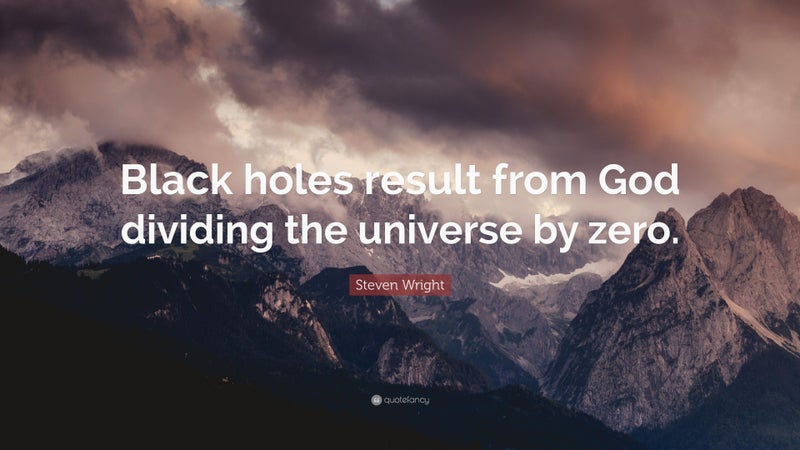
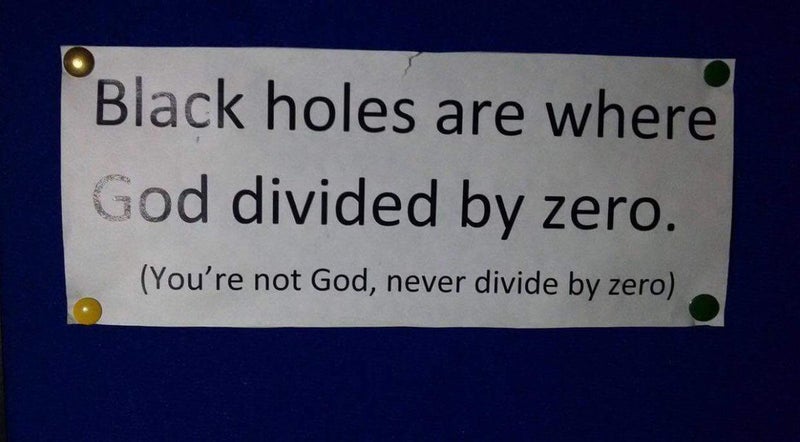



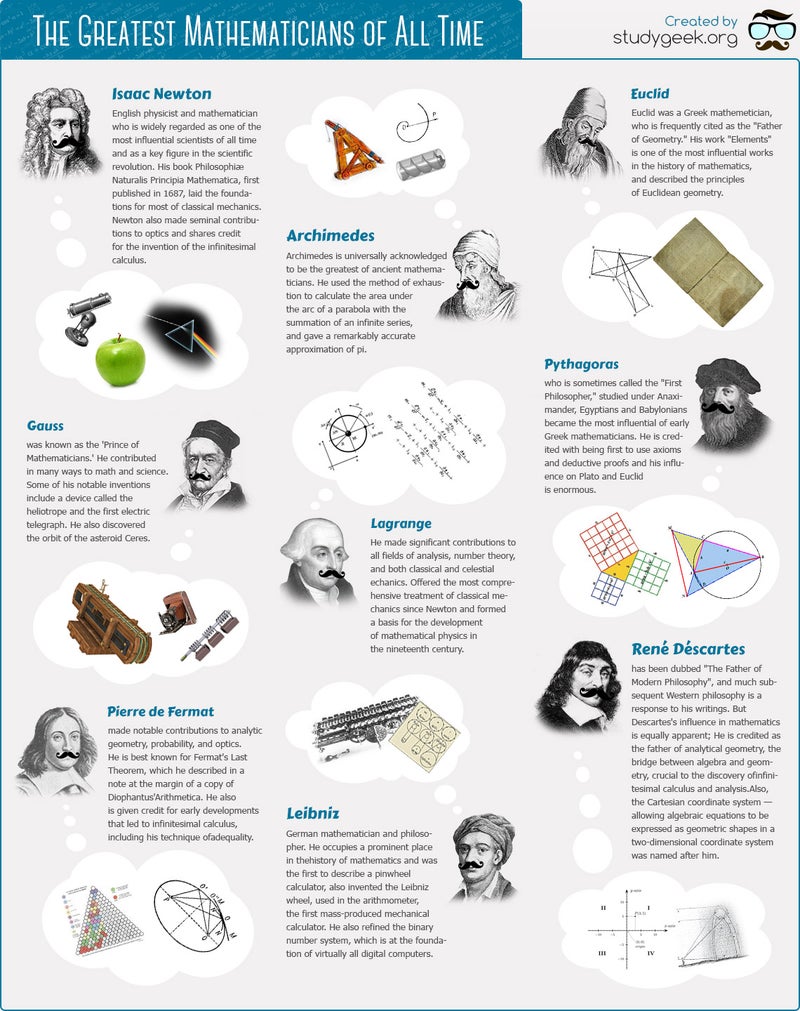



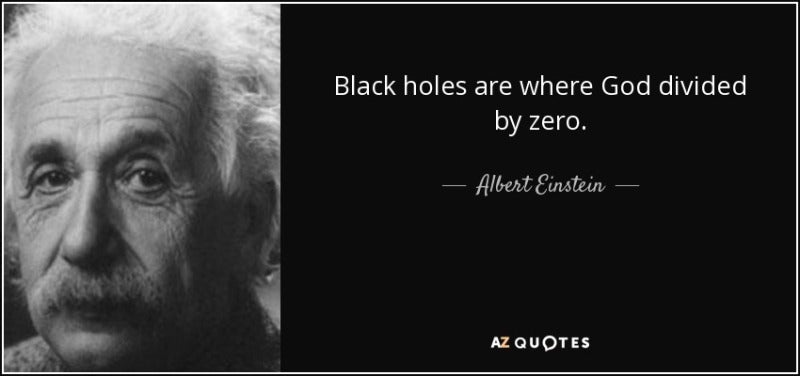













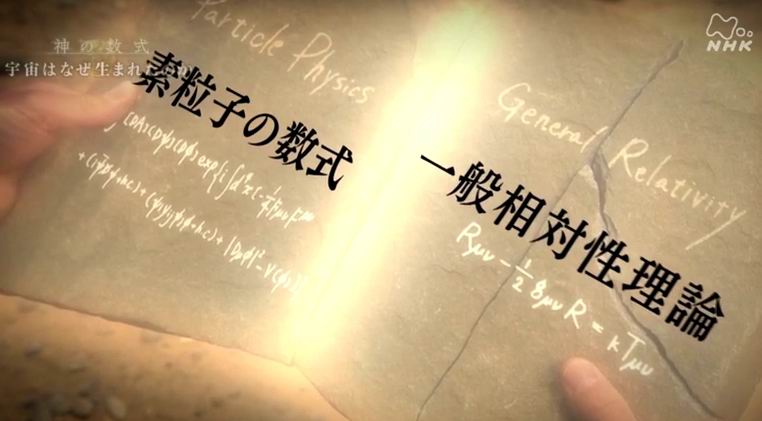



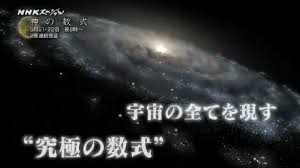


0 件のコメント:
コメントを投稿